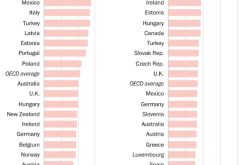from Lars Syll In a post on his blog, Oxford macroeconomist Simon Wren-Lewis discusses if modern academic macroeconomics is eclectic or not. When it comes to methodology it seems as though his conclusion is that it is not: The New Classical Counter Revolution of the 1970s and 1980s … was primarily a revolution about methodology, about arguing that all models should be microfounded, and in terms of mainstream macro it was completely successful … Mainstream academic macro is very eclectic...
Read More »Keynesian explanation of unemployment: seriously Incomplete
from Asad Zaman This post is Lecture 8B — from 17m to 37m of video lecture linked at bottom of post. It attempts to make sense of the Keynesian explanation of unemployment based on insufficient aggregate demand. It concludes that several elements missing from Keynes must be added to get to a satisfactory explanation. Friedman’s Methodology leads to crazy models: In previous post ( Lecture 8A – Microfoundations for Keynesian Economics ), we showed that even small differences in the...
Read More »The narrative of globalization
from Thomas Palley and the current issue of the RWER As regards economics, the conventional wisdom interprets globalization through the lens of trade theory, which maintains there are gains for all countries that participate.[1] The narrative is that there have been two globalizations in the modern era. The first began around 1870 and ended in 1914. The second began in 1945 and is still underway. Globalization is identified with the history of trade, and the narrative is constructed...
Read More »Dean Baker Live Stream
Dean Baker Live Stream
Kalecki and Keynes on the loanable funds fallacy
from Lars Syll It should be emphasized that the equality between savings and investment … will be valid under all circumstances. In particular, it will be independent of the level of the rate of interest which was customarily considered in economic theory to be the factor equilibrating the demand for and supply of new capital. In the present conception investment, once carried out, automatically provides the savings necessary to finance it. Indeed, in our simplified model, profits in a...
Read More »Nine years with euro crisis – time to think anew
from Trond Andresen, Steve Keen and Marco Cattaneo A new means of payment can be part of the solution for the eurozone’s unemployed. We have now seen nine years of social crisis and huge unemployment in many euro countries. An entire youth generation has barely experienced anything but being out of work. Still no solution has been found or implemented. The time is overdue to think outside the box. We propose a solution that has circulated internationally for several years: some of us have...
Read More »Economic growth leaves many Americans behind
from David Ruccio and Jamie Morgan and the current issue of RWER What we’re seeing then, especially in the United States, is a self-reinforcing cycle of high profits, low wages, and even higher profits. That’s why the labour share of business income has been falling throughout the so-called “recovery”:[1] Eric Levitz in a July 2018 article in New York Magazine states that in the end this is political, as “American policymakers have chosen to design an economic system that leaves workers...
Read More »Dean Baker Live Stream
Finance: need to understand banking, money and credit
from John Balder and the current issue of RWER To explore the origins of the global financial crisis, the first step is to specify the relationship between banking, money and credit. According to the mainstream view, a bank serves as an intermediary between a borrower and a lender. As a pure intermediary, a bank has no impact on real economic activity. This view – taught in most Economics 101 textbooks – implicitly assumes that money is available in finite quantities that are regulated by...
Read More » Real-World Economics Review
Real-World Economics Review




